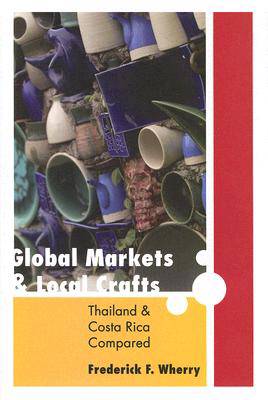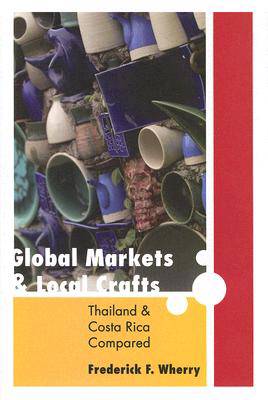
- Retrait gratuit dans votre magasin Club
- 7.000.000 titres dans notre catalogue
- Payer en toute sécurité
- Toujours un magasin près de chez vous
- Retrait gratuit dans votre magasin Club
- 7.000.000 titres dans notre catalogue
- Payer en toute sécurité
- Toujours un magasin près de chez vous
Description
Today it is not uncommon to find items in department stores that are hand-crafted in countries like Thailand and Costa Rica. These "traditional" crafts now make up an important part of a global market. They support local and sometimes national economies and help create and solidify cultural identity. But these crafts are not necessarily indigenous. Whereas Thailand markets crafts with a long history and cultural legacy, Costa Rica has created a local handicraft tradition where none was known to exist previously.
In Global Markets and Local Crafts, Frederick F. Wherry compares the handicraft industries of Thailand and Costa Rica to show how local cultural industries break into global markets and, conversely, how global markets affect the ways in which artisans understand, adapt, and utilize their cultural traditions. Wherry develops a new framework for studying globalization by considering the phenomenon from the perspective of the supplier instead of the market. Drawing from interviews and extensive fieldwork shadowing artisans and exporters in their daily dealings, Wherry offers a rare account of globalization in motion--and what happens when market negotiations do not proceed as planned.
Considering economic and political forces, flows of people and materials, and frames that define cultural and market situations as they play out in the artisan communities of these two countries, Wherry uncovers how authentic folk tradition is capitalized or created.
Spécifications
Parties prenantes
- Auteur(s) :
- Editeur:
Contenu
- Nombre de pages :
- 208
- Langue:
- Anglais
- Collection :
Caractéristiques
- EAN:
- 9780801887949
- Date de parution :
- 25-02-08
- Format:
- Livre relié
- Format numérique:
- Genaaid
- Dimensions :
- 162 mm x 235 mm
- Poids :
- 444 g







